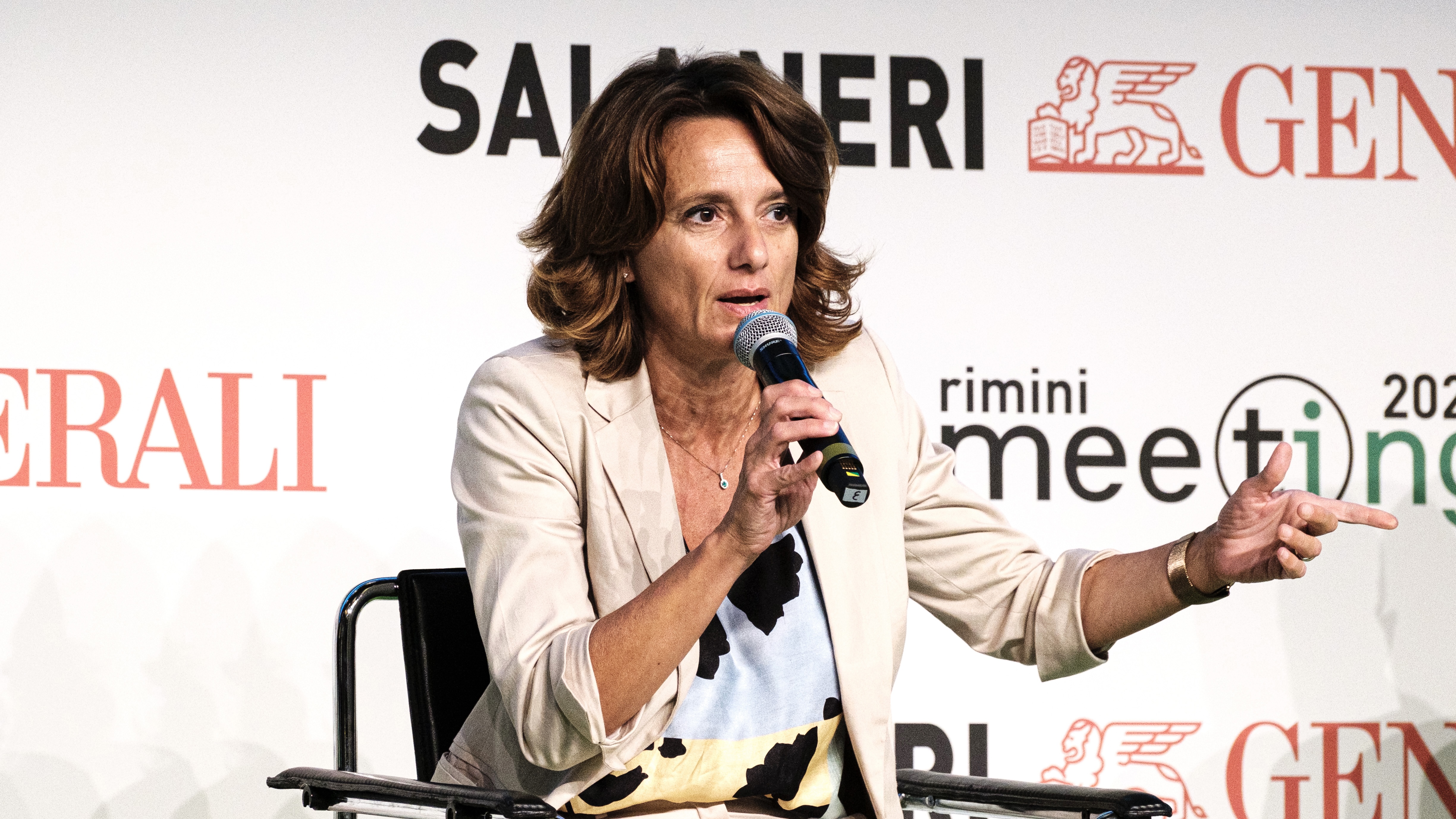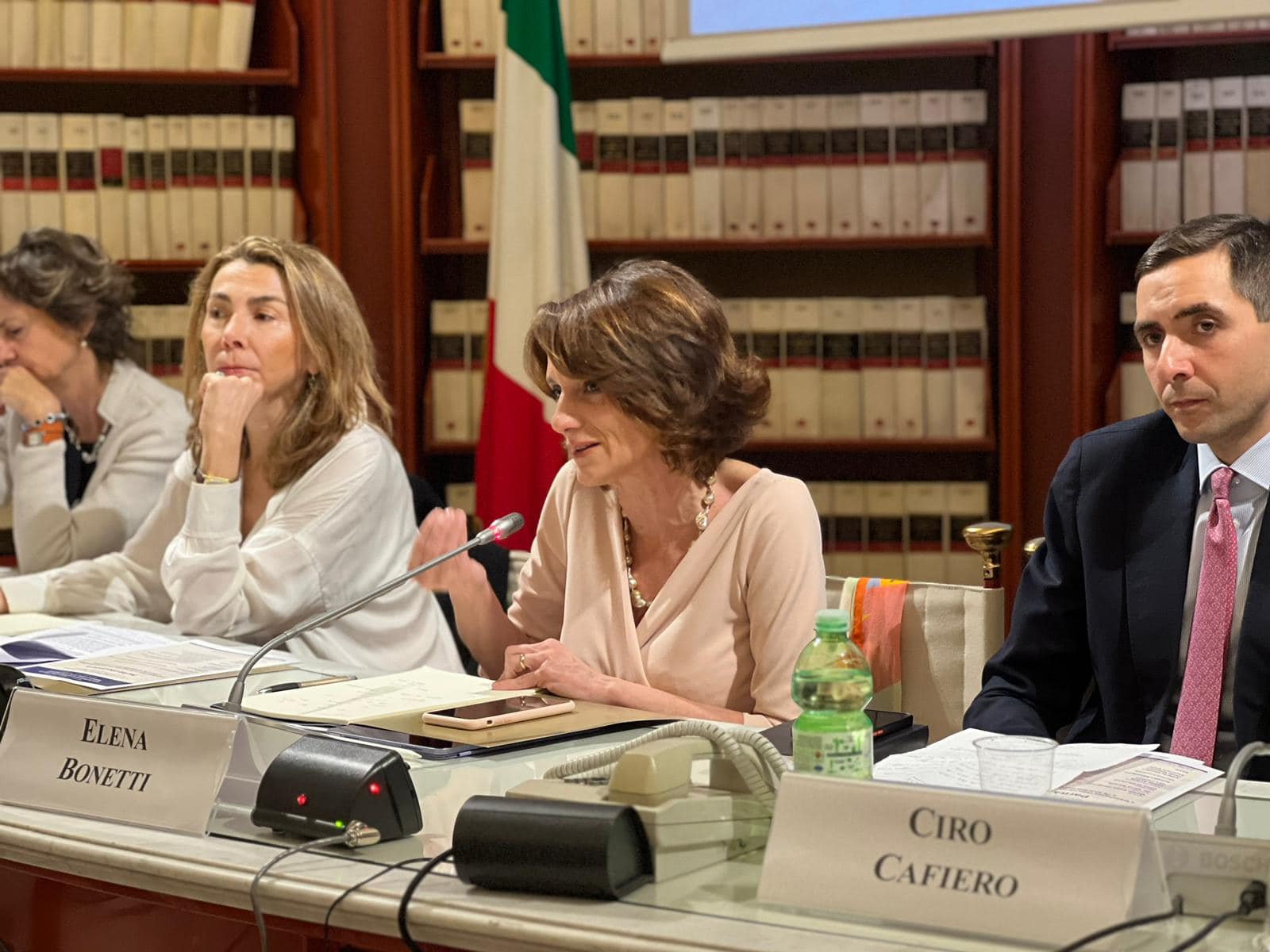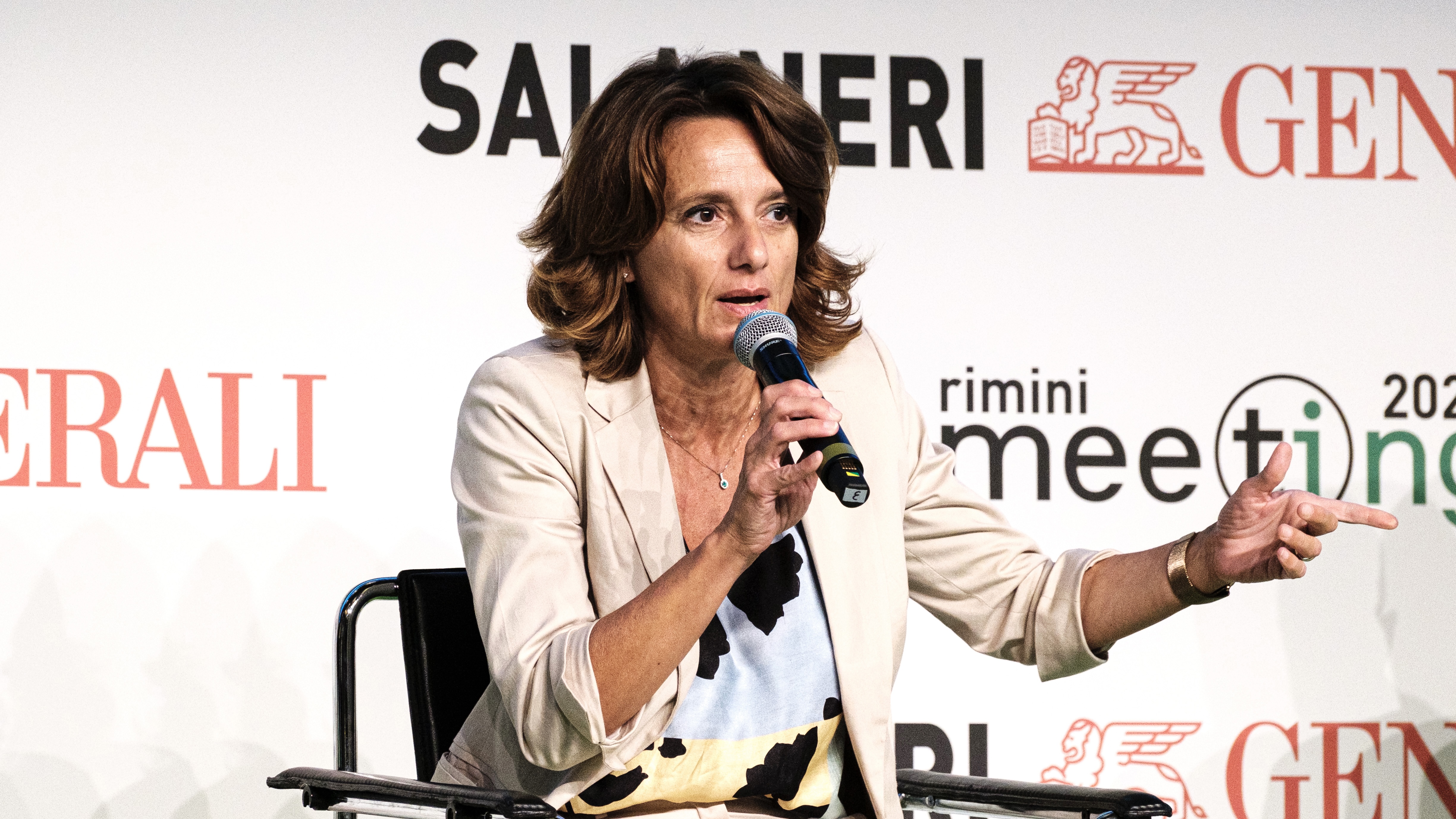Italy’s Growth Seen at Risk If Meloni Lets Female Work Law Lapse
Italy’s next government risks harming the economy’s long-term prospects if it doesn’t keep new measures to help women enter the workforce, according to Premier Mario Draghi’s equal opportunities minister.
“It will be up to them to decide if they want to push forward or go back,” Elena Bonetti said in an interview in Rome on Thursday. “There are studies showing that increasing female participation to the level of some of Europe’s most inclusive countries would boost gross domestic product by 10%.”
Bonetti shepherded legislation known as the “Family Act,” which includes measures to help women get hired and stay in work after having children. She is preparing to leave office ahead of general elections on Sept. 25.
The right-wing coalition led by Brothers of Italy’s Giorgia Meloni was ahead in polls published before a blackout period on that began earlier this week. That party has previously voted against gender quotas and equal pay.
Gender Divide
Underemployment rates in euro zone’s top three economies
Bonetti expressed hope that the country’s next leaders realize that many themes she has sought to tackle in the Family Act offer the only long-term solutions to economic stagnation. While approved as law, some of its provisions still need to be implemented by subsidiary legislation to become operational.
Italy has been plagued by decades of low growth and high debt. Its outlook is further overshadowed by an aging population, with fewer young people supporting the pensions of a swelling number of retirees.
Most analysts agree that increased productivity is the only way out of the country’s trap of low growth and poor demographics. Bank of Italy Governor Ignazio Visco said last week that people will have to work until later in life, and that investments and innovation are important, but not enough.
“We’ll need to increase participation in the labor market,” he said. “Particularly of young people and women, especially young women in the South.”
Treading Water
Italy had weakest growth of any euro-area economy in last decade
Bonetti’s Family Act includes more parental leave for fathers as well as mothers, and also checks to pay for babysitting if both parents work.
It includes a gender equality certificate for companies, granting tax breaks if certain criteria are met. There are also monthly payments for families, which increase with the birth of each child and last until adulthood.
“If the woman works, the money she can get from the government increases,” Bonetti said. “We want to encourage the building of a family, but not to discourage work.”



























